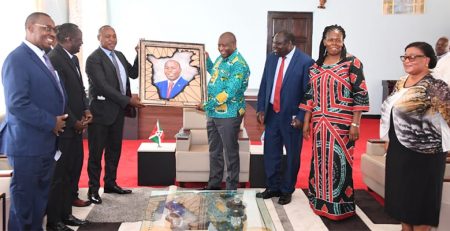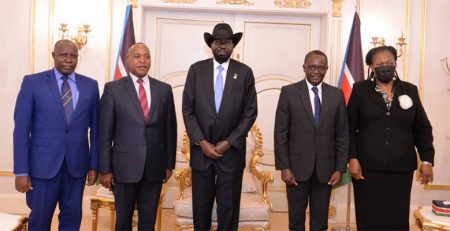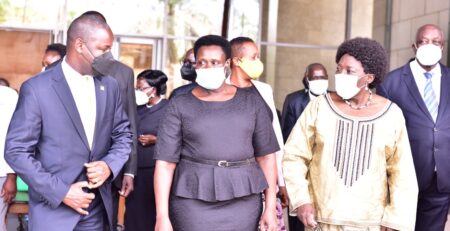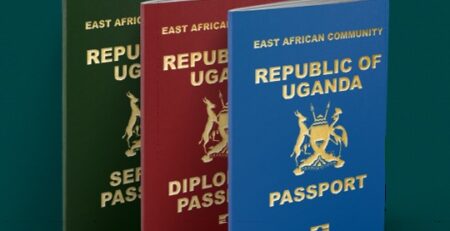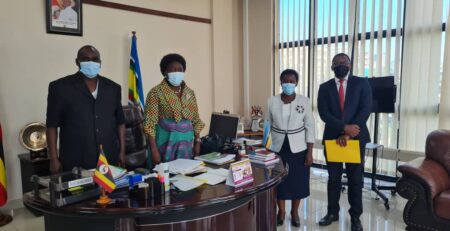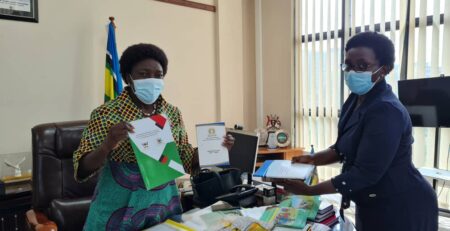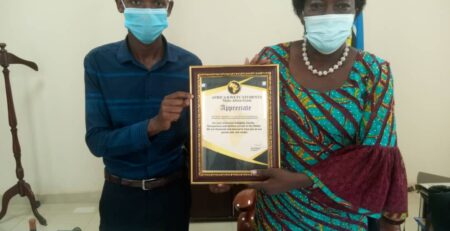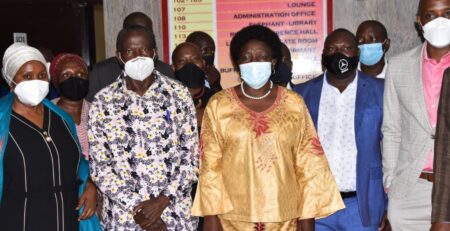Kiswahili: The Strategic Language Uniting East Africa
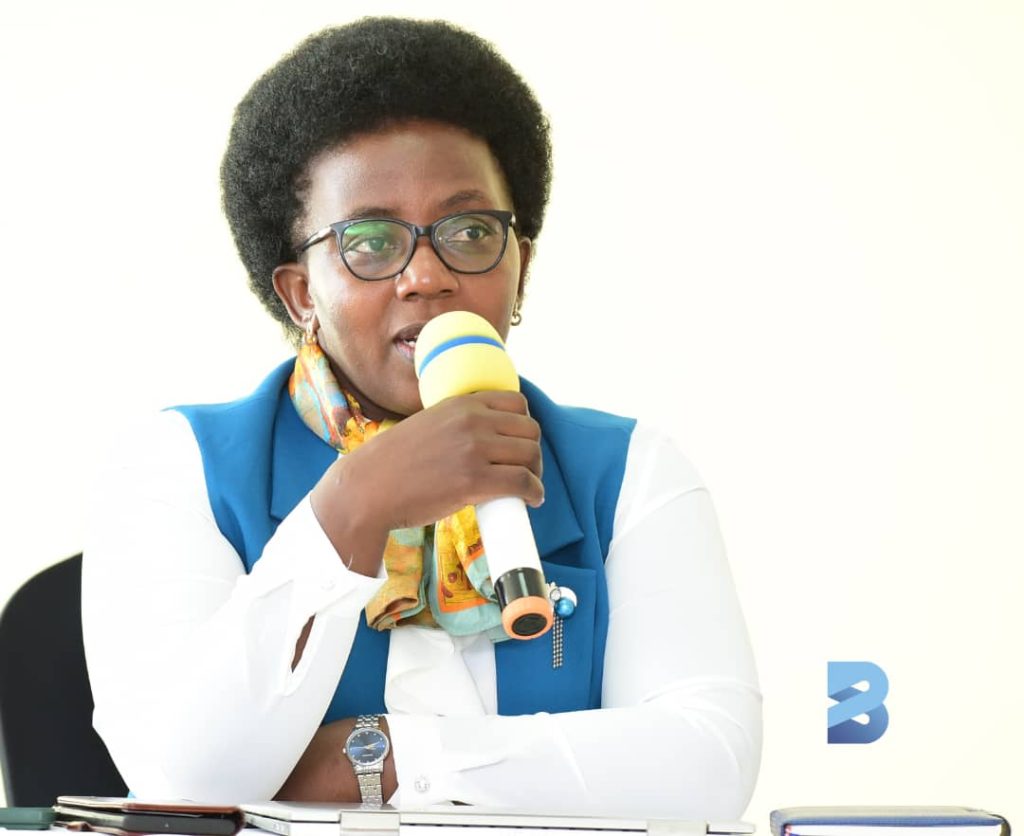
Executive Secretary, East African Kiswahili Commission, Dr. Asiimwe Caroline.
Bishop Samuel
With an estimated 250 million speakers globally, Kiswahili is one of the fastest-growing African languages and serves as a vital resource for regional and global communication. Its importance extends beyond communication, playing a crucial role in the East African Community’s (EAC) quest for regional integration, achievement of Sustainable Development Goals (SDGs), and other development objectives. Kiswahili resonates deeply with the majority of citizens in the EAC Partner States, reflecting and preserving their cultures.
This morning, at the invitation of the East African Kiswahili Commission (EAKC), stakeholders and experts from EAC Partner States gathered in Entebbe, Uganda, for a two-day working visit. The focus of the meeting was to discuss the initial steps in developing the EAKC’s second strategic plan. This plan aims to coordinate and promote Kiswahili’s development and use it to further EAC’s regional integration and sustainable development goals.
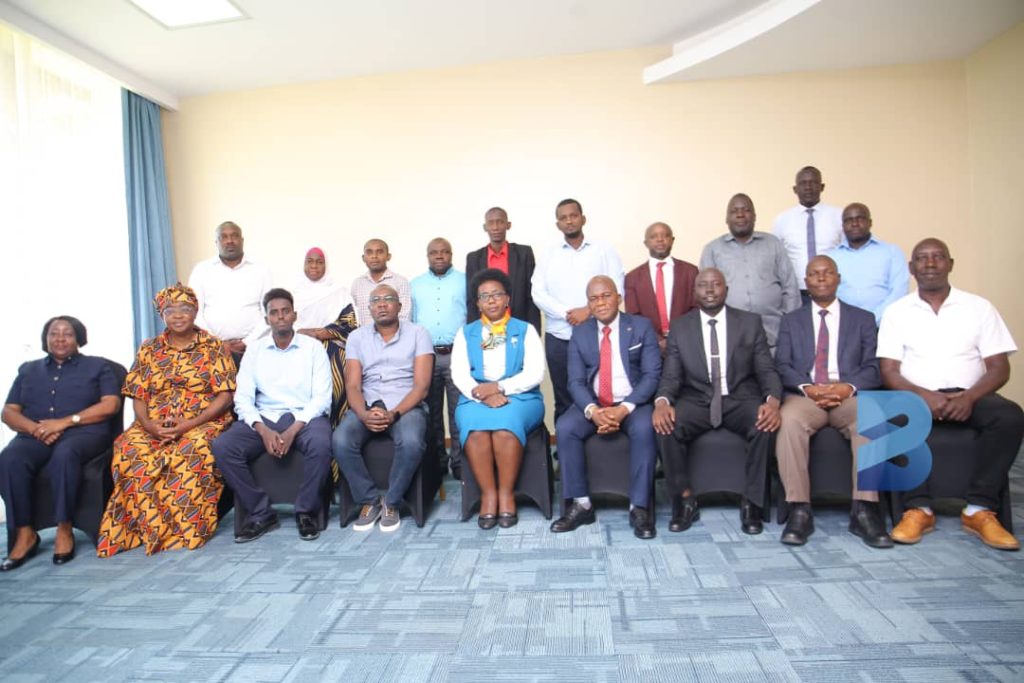
The new Strategic Plan emerges at a time when Kiswahili is gaining widespread acceptance within the region and internationally. Following the 2017 directive from the EAC Council of Ministers, Partner States have made significant progress in institutionalizing Kiswahili by making progress in establishing and operationalizing national Kiswahili Councils and Associations.
Despite challenges, including inadequate financial, human, physical, and legal resources, as well as the absence of a Board of Management, the Executive Secretary of the EAKC, Dr. Caroline Asiimwe, highlighted the unifying power of Kiswahili. She emphasized that promoting Kiswahili fosters a collective identity that transcends ethnic and linguistic differences, allowing East African citizens to connect through a shared medium of communication. This unity strengthens cultural ties and encourages the celebration of African heritage.
The new Strategic Plan builds on the achievements of the first plan, which focused on:
– Operationalizing the Commission
– Developing Kiswahili training programs and manuals
– Amending the EAC treaty to declare and adopt Kiswahili as an official language of the community
– Capacity building for Kiswahili institutions in Partner States
– Establishing a mobility program for coordination and harmonization of Kiswahili translation
– Conducting capacity assessments for Kiswahili development and use
– Establishing Kiswahili Associations
– Publishing and disseminating Kiswahili research findings
– Recruiting and training EAKC staff
While building on these achievements, the new plan addresses ongoing challenges such as inadequate funding, limited staffing, and a weak legal framework that have hindered the Commission’s activities in recent years.
In implementing the new Strategic Plan, the EAKC will collaborate closely with EAC organs and institutions, Partner States, and key stakeholders, including national Kiswahili councils, associations, the private sector, youth, and development partners. A monitoring and evaluation framework is in place to track progress, address gaps, and ensure accountability and learning.
END

